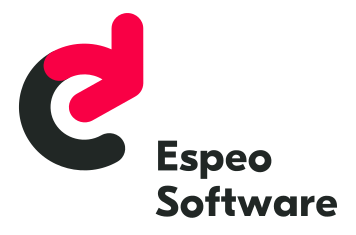As I browse through the supermarket, I often notice how much more retailers charge for sustainable products. But after spending time in the blockchain space, I have to question everything. How can I know that that wild salmon came from pristine waters? Is the ground beef as fresh as the label says? Is it beef at all?
Trust issues aside, logistics and supply chain management is notoriously complex — some argue opaque. Retailers are starting to test blockchain to track products and quickly react to outbreaks of food-borne illness. Consumers, as well as retailers, will benefit from greater transparency and trust blockchain logistics brings to the industry.
Fighting food fraud: Blockchain in logistics and supply chain management
Table of contents:
Blockchain logistics
Food fraud is a persistent problem in our globalized food supply. Unscrupulous suppliers sometimes pass off cheaper fish for more expensive varieties. Occasionally it’s a different species altogether. Meat adulteration can offend religious sensibilities, or worse, threaten public health. Despite heavy-handed labeling laws in places such as the European Union, food scandals, recalls, waste and fraudulent labeling still plague the food supply.
All this compliance and waste only drives up the cost for producers and consumers. Just as blockchain technology can establish a trail of transactions in real estate or in art provenance, it can also aid logistics and supply chain management companies in tracking items on their journies to the shelves.
Fishy business
Nowhere in the food supply is fraud more prevalent than in the fishing industry. A 2016 report from the Oceana Foundation claims that one in five of over 25,000 samples of fish tested were mislabeled. Passing cheaper fish off for more expensive ones is a particularly common practice. “Laundering” protected species from restricted waters is another prevalent industry abuse cited in the report.
These abuses hurt consumers and the industry as a whole. “It harms everyone in the supply chain who is playing by the rules,” wrote Kimberly Warner, author of the study and senior scientist with Oceana. “The person going through the effort to catch fish legally and label correctly is undercut by the fraudulent practices.” Distributed ledger technology could make it more difficult to cheat on labeling, adding more trust into the supply chain.
Cost of misbehavior
Blockchain logistics, of course, is unlikely to stop the illegal activity altogether. However, it might put pressure on companies involved to play by the rules. Marcin Rzetecki head of blockchain at Espeo admits that blockchain technology is not a magic bullet, but that it would be a better tool to keep all the actors honest. “When you have many companies in a supply chain,” he said, “and one of them tries to cheat, other members can check on their competitors.” Consequences for misbehaving could be a loss of access to lucrative markets.
Retailers targeting a tech-savvy niche could charge premiums for blockchain-verified fish, for example. Rzetecki imagines QR codes on packaging that allow shoppers to see every step of the way. “Digital signatures of each company in the supply chain can provide a tamper-proof history. It’s much clearer from an end-user perspective. They have all the information in one place.”
Verifiably sustainable products could command a higher price just as wild-caught, free-range, fair trade, and similar premium products do today. In fact, an application with a blockchain back end may do more to infuse trust in these labels than murky industry groups and government bodies do already. Economic pressure from an informed public may force companies to clean up their acts.
Horsemeat Scandal
Switching out species on the label is not limited to fish, though. The 2013 horsemeat scandal in the European Union is one high-profile example. Despite strict labeling requirements in the bloc, dishonest producers snuck horsemeat and pork into products labeled as beef. Unsurprisingly, this sent shockwaves through the logistics and supply chain management industry as government regulators cracked down driving costs up for the entire industry.
Adulteration poses several risks to consumers, and retailers alike. In the horsemeat scandal, large retailers bore the brunt of the outrage that unfolded as the first point of consumer contact. Alienating consumers is just one of the many risks the adulteration scandal poses. Those with dietary restrictions, especially religious ones, may move to competitors who can verify the source of meat to trusted suppliers.
As with the fish example, blockchain technology may not end industry abuse, but it would provide a competitive advantage to attract conscious consumers. It would also make the stakes much worse for actors who break the rules.
Blockchain could aid stakeholders in tracking the origin of products to find culprits much more quickly than they do currently. Part of what made the horsemeat scandal so scandalous was the time it took for regulators to track down the source. A blockchain logistics platform could have allowed health officials, retailers, and suppliers to find adulterated sources quickly, reducing costs and preventing massive waste.
Innovation in logistics and supply chain management
While blockchain logistics apps have yet to emerge for consumers, logistics and supply chain management tools for enterprises have. In mid-2018, American retail giant Walmart unveiled a blockchain-based platform designed to track the source of their fresh produce from farm to shelves. Food Trust, the company’s private blockchain logistics system aims to help the company and health officials pinpoint farms during an outbreak of food-borne illness. Instead of tracking individual databases of all the stakeholders involved, stakeholders already have all the distributed tracking data. This greatly reduces the turn around time for containing a crisis.
Food Trust cuts the time to trace the source of food from a week down to a little over two seconds. Food recalls, they hope, will be much smoother and targeted. This will save time and resources, reduce food waste, and drive competitive advantage. Walmart’s sheer size enables it to compel suppliers to join the program, or else. The company’s suppliers have until September 2019 to implement the Food Trust platform in its logistics and supply chain management. Other influential market players could also develop blockchain logistics systems to help them maintain market share.
Conclusion
Logistics and supply chain management is due for an overhaul. As globalization increases the complexity of the food supply chain, innovative technologies can help retailers keep track of suppliers, minimize crises, and remain competitive. Consumers also stand to benefit from a safer, more transparent food supply.
Gaining more accurate source information could attract conscious consumers, and keep the industry honest. Retail giants are already implementing blockchain technology in their logistics and supply chain management strategies. Market trends will only continue to drive innovation in blockchain logistics.
For more on designing and developing a blockchain application for supply chain tracking, call us for a free 15-minute consultation.
Related posts:

